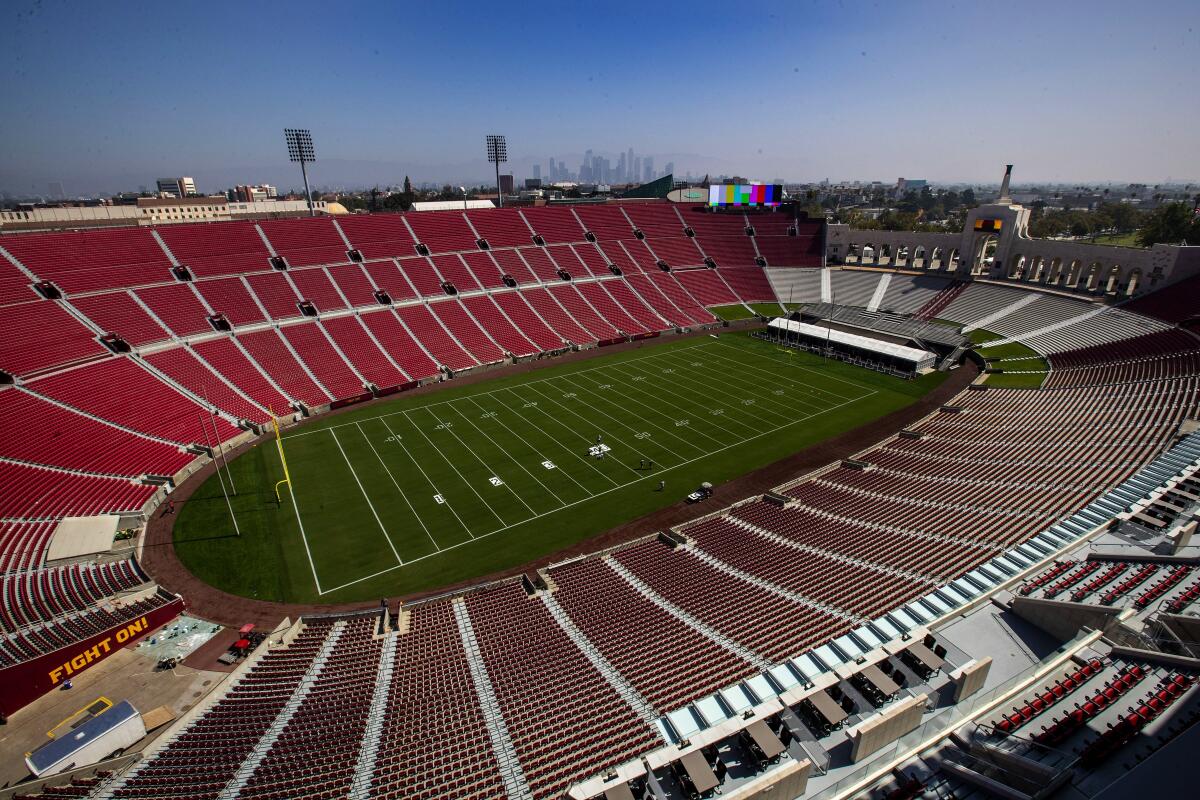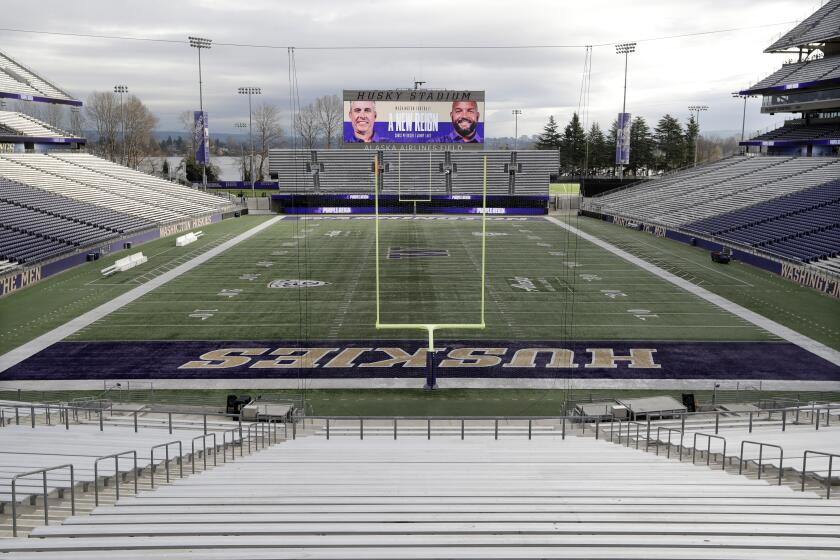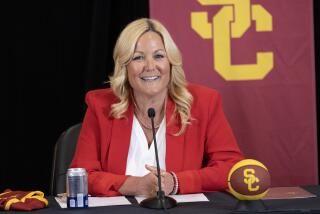USC planning on ‘reduced capacity’ at Coliseum for football games

After months of uncertainty concerning how college football might carry on this season, if at all, amid the COVID-19 crisis, USC athletic director Mike Bohn offered a bit of optimism for the upcoming season on Tuesday, declaring in a letter to season ticket holders that USC is preparing for fans to be in the Coliseum stands this fall.
Bohn wrote that the university was planning for “a reduced capacity” Coliseum but that any such plans were “subject to change” based on local health and safety guidelines.
The state of California has not yet cleared the way for fans to return to sports stadiums — or any large gathering, for that matter. California Gov. Gavin Newsom said last month that it was “difficult for me to imagine a stadium that’s filled until we have immunity, until we have a vaccine.”
A partially full Coliseum, however, is apparently a possibility. The stadium, which was renovated before last season, has a capacity of 77,500 fans. How much that capacity will have to be cut — and who will fill those open seats — remains to be seen.
The announcement comes as Pac-12 campuses begin to reopen this week for voluntary workouts and college football attempts to creep back to normal. But as USC addressed season ticket holders about their potential attendance at the Coliseum, its football team remains away from campus with no firm date set for a return.
Even as the novel coronavirus continued to cast doubt, Bohn has remained mostly optimistic about the possibility of starting the football season on time. Still, his statement Tuesday was his strongest yet about fans being a part of the action.
Across the Pac-12 football footprint Monday, other than in California, players returned to a different world because of COVID-19 protocols.
Last month, in an interview with West Coast Sports Associates, Bohn said he was “hopeful to have as many [fans] as possible” in the fall but warned that the logistics involved in such an operation would be immense.
Even the Coliseum’s architecture will make matters difficult, Bohn said then.
“Those tunnels leading into the Coliseum are awesome,” he said. “They’re intense. But they’re so tight. You can’t have people going each way. … You’re going to have to have people be patient. It’s going to kind of be like people going out at church.”
A reduced capacity might help in that regard, but it inevitably means a significant loss in revenue for USC’s athletic department. Roughly 85% of USC’s athletics budget comes from football, a sizable portion of which comes from season tickets, donations, concessions, parking and other game-day-related expenses.
It remains to be seen how many fans will be allowed to fill the Coliseum in the fall or how the university will handle their arrival, their exit, and everything in between. But with college football forging ahead amid the pandemic, USC is at least preparing for the possibility that some fans will be in the stands this season.
More to Read
Go beyond the scoreboard
Get the latest on L.A.'s teams in the daily Sports Report newsletter.
You may occasionally receive promotional content from the Los Angeles Times.








